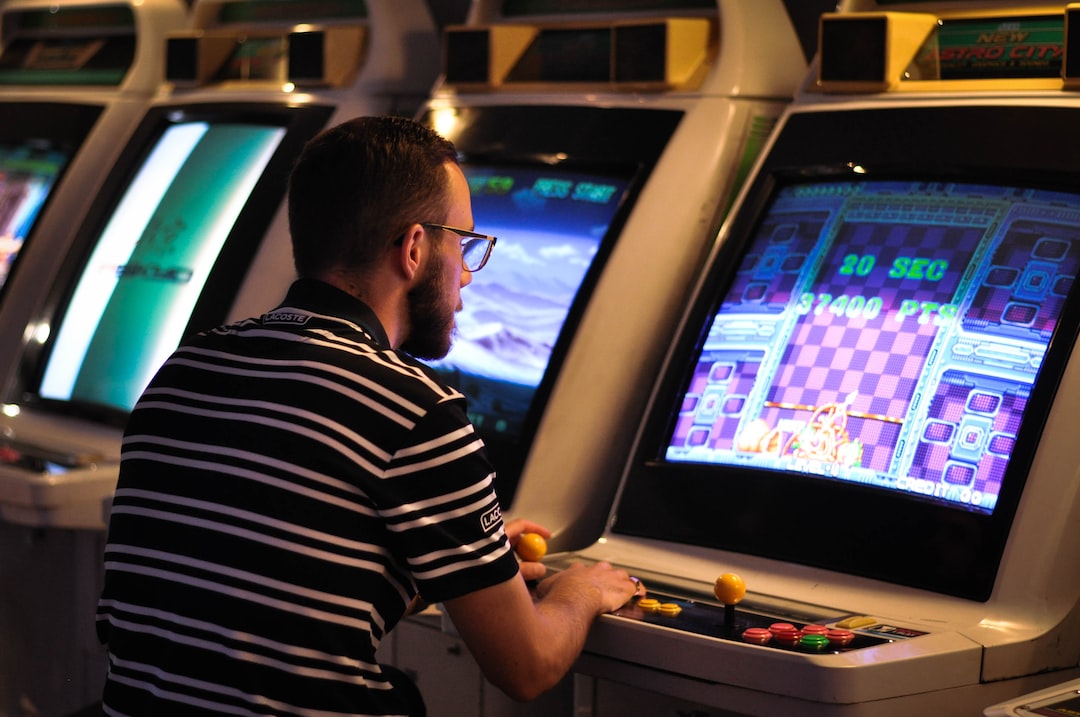The Psychology of Gaming: Understanding Why We Play
From the simplicity of Pong to the complexity of multiplayer online battle arenas (MOBAs), gaming has become a ubiquitous pastime across the globe. But have you ever stopped to ponder why we are so drawn to these virtual worlds? Why do we spend hours on end striving for virtual achievements and battling imaginary foes? The answer lies in the intricate psychology behind gaming.
First and foremost, gaming provides us with a sense of escapism. In our reality, we face various challenges and stresses, be it at work, school, or in our personal lives. Games offer a temporary respite from these burdens as we immerse ourselves in captivating narratives or competitive gameplay. In these virtual worlds, we can be heroes, explorers, or even villains, exploring realms unattainable in our everyday lives. This escape from reality not only provides entertainment but also acts as a form of therapy, allowing us to recharge and regain our emotional equilibrium.
Gamification, or the application of game-design principles to non-gaming contexts, has further solidified the allure of gaming. Many aspects of gaming, such as leveling up, earning rewards, and completing quests, tap into our intrinsic motivations. Psychologist Mihaly Csikszentmihalyi coined the term “flow” to describe the optimal state of consciousness one experiences when fully immersed in an activity. Gaming has the unique ability to consistently induce this state of flow, as players are constantly presented with achievable challenges and rewarded for their efforts. This process triggers a sense of accomplishment and fulfillment, igniting a desire for continued engagement.
Additionally, the social aspects of gaming contribute to its addictive nature. In today’s interconnected world, multiplayer games allow us to interact and form relationships with individuals from different corners of the globe. Social gaming not only provides a platform for forging new friendships but also strengthens existing ones. Collaborative endeavors foster teamwork, communication, and problem-solving skills, while competitive gameplay stimulates our desire for social validation. The camaraderie and sense of belonging that emerge from these virtual communities can often match, if not surpass, the relationships formed in real life.
Moreover, gaming satisfies our fundamental psychological needs by offering a sense of autonomy, competence, and relatedness. Autonomy is the desire to have control over our actions and decisions. In games, we have the freedom to make choices, shape narratives, and customize our avatars. This empowerment creates a sense of agency and ownership, allowing us to express our individuality. Competence is the need to feel capable and successful. Games provide clear goals, progress indicators, and feedback systems, allowing us to constantly measure and improve our skills. The sense of mastery derived from overcoming challenges serves as a powerful motivator for our continued engagement. Lastly, relatedness is the drive for connection and belonging. Multiplayer games facilitate social interactions, creating communities of like-minded individuals who share a common passion.
However, it is important to recognize that excessive gaming can lead to negative consequences. Like any pleasurable activity, gaming can be addictive, especially when it begins to interfere with our daily functioning, relationships, and responsibilities. Excessive gaming may result in social isolation, poor physical health, and mental health issues such as anxiety and depression. It is, therefore, crucial to maintain a healthy balance between gaming and other areas of life, utilizing games as a source of enjoyment rather than an escape from reality.
In conclusion, the psychology of gaming reveals why we are so engrossed in virtual worlds. Gaming offers us an escape from reality, taps into our intrinsic motives for achievement, satisfies our social needs, and provides a platform for self-expression and personal growth. Understanding the psychological underpinnings of gaming not only enriches our gaming experiences but also allows us to navigate the potential risks associated with excessive gaming. So, whether you embark on a quest to save a princess or engage in a heated battle royale with friends, remember that gaming is an art, and like any art form, it has the power to entertain, inspire, and transform.

